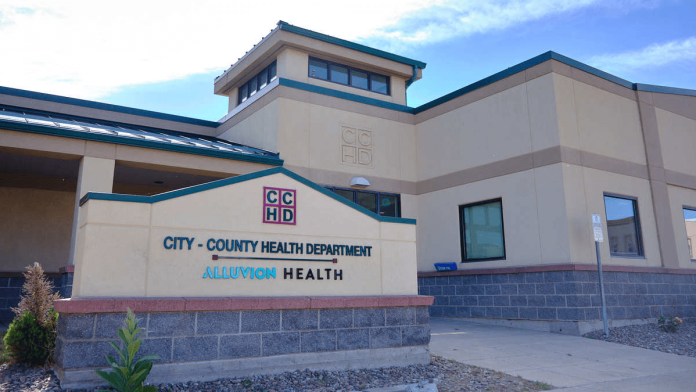The Montana Supreme Court earlier this month ruled in favor of the city of Great Falls in a yearslong dispute with Cascade County over the makeup and powers of the city-county board of health.
The dispute stems from COVID-era legislation that sought to give elected officials greater power over these local health boards.
Cascade County pushed to consolidate the governing power of the board of health to county commissioners, excluding city officials. The county argued that city commissioners weren’t accountable for passing board ordinances that impact residents outside of Great Falls. The court ultimately sided with the perspective of the city, whose attorneys argued that a 1975 agreement to create the city-county board of health provides that joint responsibility and eligibility to sit on the board.
In March 1975, Cascade County and Great Falls updated a 30-year-old agreement for a joint city-county health department and a board to govern its operations. The agreement outlined board membership to include a county commissioner, the mayor of Great Falls (or a representative) and five more members that could include the school superintendent, licensed doctors and citizens.
That agreement stood for 46 years until the 2021 state legislative session, which saw multiple bills targeting local health oversight amid COVID-related lockdowns, mask mandates and other emergency measures. One of those bills was HB 121, which demanded that elected officials hold the voting power on local health boards, though other members could still sit on the boards.
Conflicting interpretations of the governing body definition prompted a string of meetings between city, county and health board officials to define who could legally sit and vote on the board.
Cascade County officials argued that only county commissioners should be designated as a “governing body” and vote on the city-county board of health. The county contended that city officials couldn’t legislate on a health board for residents who live outside the city.
“The problem you’ve got there is you guys’ authority stops at the city line,” said County Commissioner Joe Briggs at a joint meeting in July 2021. “And so you would be exerting authority over people who would have no recourse against you.”
The city argued that both jurisdictions agreed in 1975 to a joint city-county health board, and that agreement included city representation.
The city and county agreed in 2021 to temporarily designate three county commissioners and one city commissioner to the board, though the city commissioner had no voting authority. This was meant as a stopgap until officials reached a permanent solution. That agreement expired in June 2022, and with no agreement made, the dispute went to court.
In August 2022, District Court Judge Elizabeth Best sided with the city that the inclusion of a city official like the mayor on the board of health “is not prohibited, and is, in fact, required.”
The county appealed to the Montana Supreme Court, which affirmed the lower court’s decision on June 4.
“Here, as expressly required by the 1975 Agreement, the consolidated city-county health board necessarily includes at least two members of the consolidated city-county health board who are ‘elected officials…’— a county commissioner and the city mayor,” wrote Justice Dirk Sandefur for the unanimous court opinion. “We have no record basis upon which to conclude or question that the consolidated city-county health board is not so-constituted in conformance with the 1975 Agreement.”
The courts ruled that the COVID-era legislation requiring elected officials to be decision-makers on health boards didn’t disrupt the agreement that Great Falls and Cascade County made in 1975.
County Commissioner Briggs, who is chair of the city-county board of health, didn’t return calls for comment. Back in 2021, Briggs argued that HB 121 superseded the 1975 agreement and favored the county’s oversight.
“The legislative intent was that the county commissioners would be determined to be the governing body,” he said.
State Rep. David Bedey, R-Hamilton, sponsored HB 121. He told Montana Free Press that his intent was to place responsibility with elected officials on local health boards, but he wanted to allow room for multi-jurisdictional setups like the one shared between Great Falls and Cascade County.
“The law is written, I think, with enough flexibility that if you have various jurisdictions together to create a board of health, it’s up to you to decide what your memorandum of understanding is,” Bedey said.
Bedey sponsored a follow-up bill in 2023 to clarify the local governing body definition. The updated language added that a local governing body may include a “local board of health if all voting members of the local board of health are elected officials.”
Gov. Greg Gianforte signed that bill into law in May 2023. Prior to the Supreme Court ruling, non-elected members of the board of health voted on matters. While the membership of the board could remain the same, officials could make changes so that only elected officials have voting powers. The next board of health meeting is July 3.
In-depth, independent reporting on the stories impacting your community from reporters who know your town.
The post Supreme Court rules that COVID-era law doesn’t exclude Great Falls officials from city-county health board appeared first on Montana Free Press.




